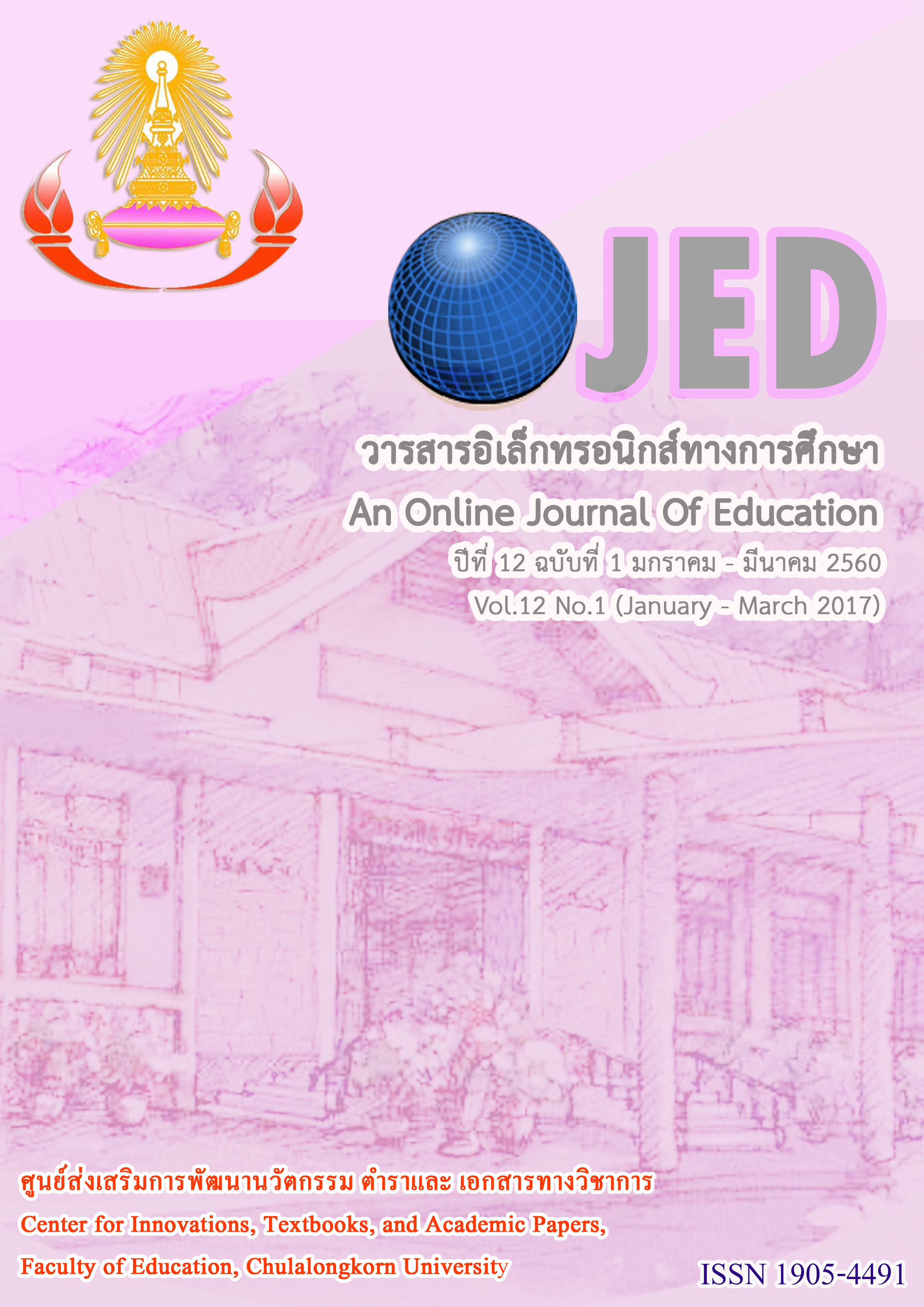แนวทางการศึกษาชุมชนเพื่อการรับมือภัยพิบัติซ้ำซ้อนผ่านการมีส่วนร่วมของผู้มีส่วนได้เสีย
Keywords:
การศึกษาชุมชน, ภัยพิบัติ, การมีส่วนร่วม, COMMUNITY EDUCATION, DISASTER, PARTICIPATIONAbstract
งานวิจัยชิ้นนี้เป็นงานวิจัยเชิงคุณภาพ โดยมีวัตถุประสงค์เพื่อนำเสนอแนวทางการศึกษาชุมชนเพื่อการรับมือภัยพิบัติซ้ำซ้อนผ่านการมีส่วนร่วมของผู้มีส่วนได้เสีย จากการเก็บรวบรวมข้อมูลผ่านการศึกษาเอกสาร การสังเกต และการสัมภาษณ์เชิงลึก ผู้วิจัยวิเคราะห์ข้อมูลดังกล่าวผ่านการจำแนกชนิดข้อมูล การเปรียบเทียบข้อมูล และการสร้างข้อสรุปแบบอุปนัย
ผลการศึกษาพบว่า แนวทางการศึกษาชุมชนเพื่อการรับมือภัยพิบัติซ้ำซ้อนผ่านการมีส่วนร่วมของผู้มีส่วนได้เสีย ประกอบด้วยองค์ประกอบ 3 ส่วน ได้แก่ 1) วัตถุประสงค์ คือ เครือข่ายชุมชนสามารถใช้ทุนชุมชนเพื่อการรับมือภัยพิบัติซ้ำซ้อนผ่านการมีส่วนร่วมของผู้มีส่วนได้เสีย 2) ประสบการณ์เรียนรู้ ประกอบด้วย ระบบสารสนเทศการใช้ทุนชุมชนในการรับมือภัยพิบัติซ้ำซ้อน ฐานข้อมูลการมีส่วนร่วมของผู้มีส่วนได้เสียในการรับมือภัยพิบัติซ้ำซ้อน เครือข่ายระหว่างชุมชน และนามานุกรมผู้เชี่ยวชาญการรับมือภัยพิบัติ และ 3) การประเมินผล ควรเป็นไปในทิศทางเดียวกับนโยบายการจัดการภัยพิบัติในระดับสากล ดังที่ปรากฏในบทบาทของผู้มีส่วนได้เสียตามกรอบการดำเนินงานเซนไดเพื่อการลดความเสี่ยงจากภัยพิบัติ พ.ศ.2558-2573
This qualitative research aims to present community education guidelines for recurrent disaster response through stakeholder participation. The data is collected from documentary research, observation, and in-depth interviews. The data is analyzed through data classification, data comparison, and analytical induction.
The research finds that there are three components for community education guidelines for recurrent disaster response through stakeholder participation: 1) Objective: community networks can apply community capital for recurrent disaster response through stakeholder participation; 2) Learning experiences, including reference services on community capital for recurrent disaster response, databases on stakeholder participation in recurrent disaster response, networks of communities, and directory of professionals on recurrent disaster responses; 3) Evaluation, which should be coherent with international disaster policies, as indicated in the roles of stakeholders in The Sendai Framework for Disaster Risk Reduction 2015-2030.




